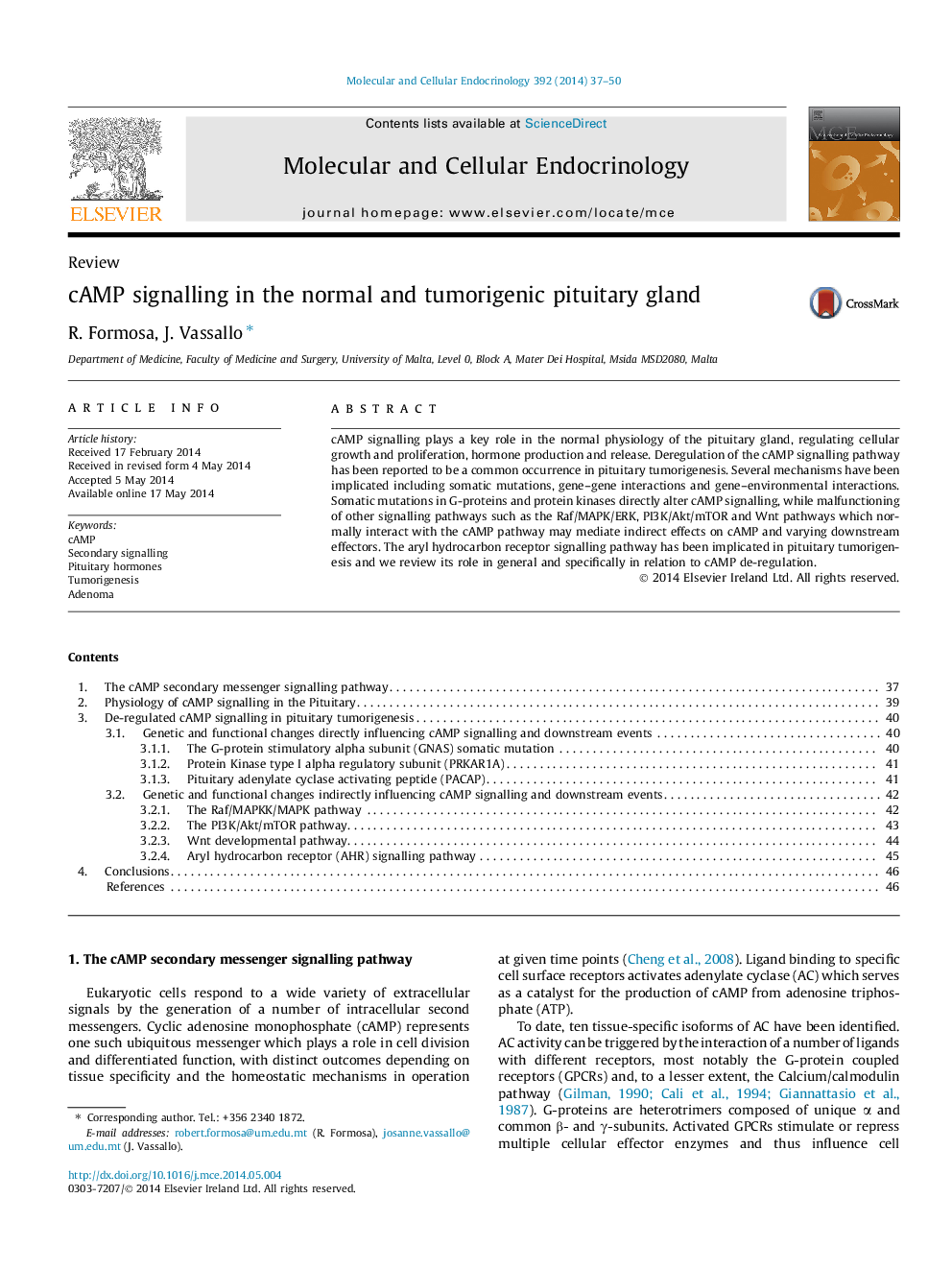| Article ID | Journal | Published Year | Pages | File Type |
|---|---|---|---|---|
| 8477175 | Molecular and Cellular Endocrinology | 2014 | 14 Pages |
Abstract
cAMP signalling plays a key role in the normal physiology of the pituitary gland, regulating cellular growth and proliferation, hormone production and release. Deregulation of the cAMP signalling pathway has been reported to be a common occurrence in pituitary tumorigenesis. Several mechanisms have been implicated including somatic mutations, gene-gene interactions and gene-environmental interactions. Somatic mutations in G-proteins and protein kinases directly alter cAMP signalling, while malfunctioning of other signalling pathways such as the Raf/MAPK/ERK, PI3K/Akt/mTOR and Wnt pathways which normally interact with the cAMP pathway may mediate indirect effects on cAMP and varying downstream effectors. The aryl hydrocarbon receptor signalling pathway has been implicated in pituitary tumorigenesis and we review its role in general and specifically in relation to cAMP de-regulation.
Related Topics
Life Sciences
Biochemistry, Genetics and Molecular Biology
Cell Biology
Authors
R. Formosa, J. Vassallo,
